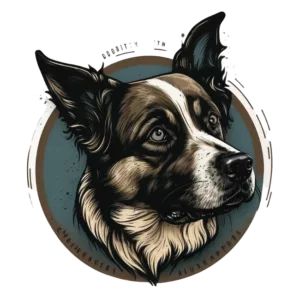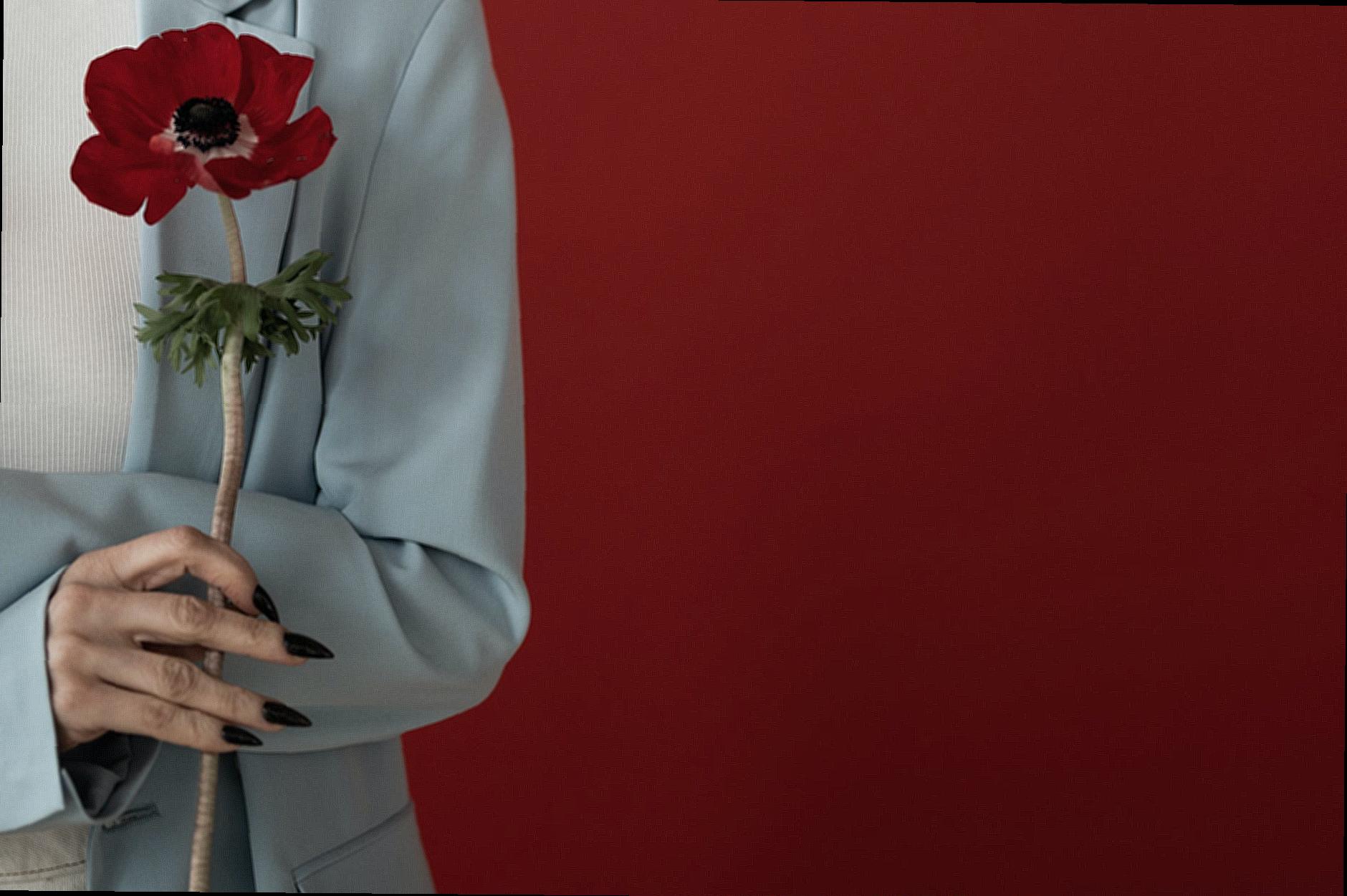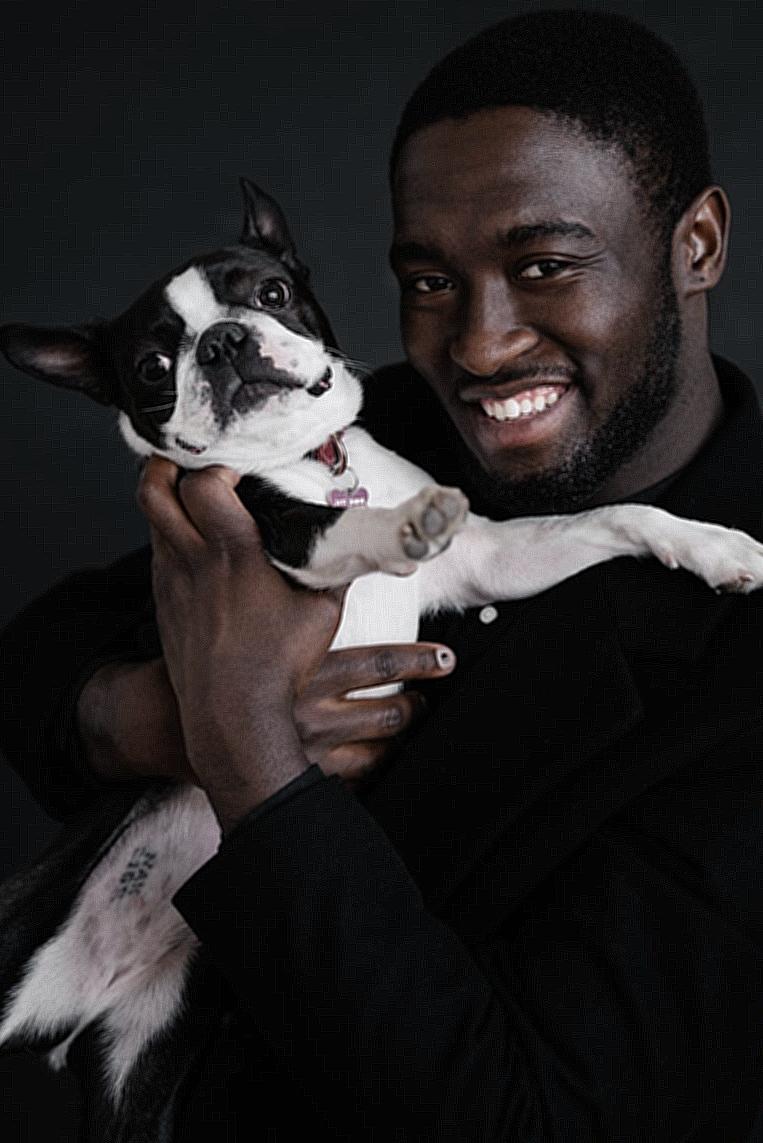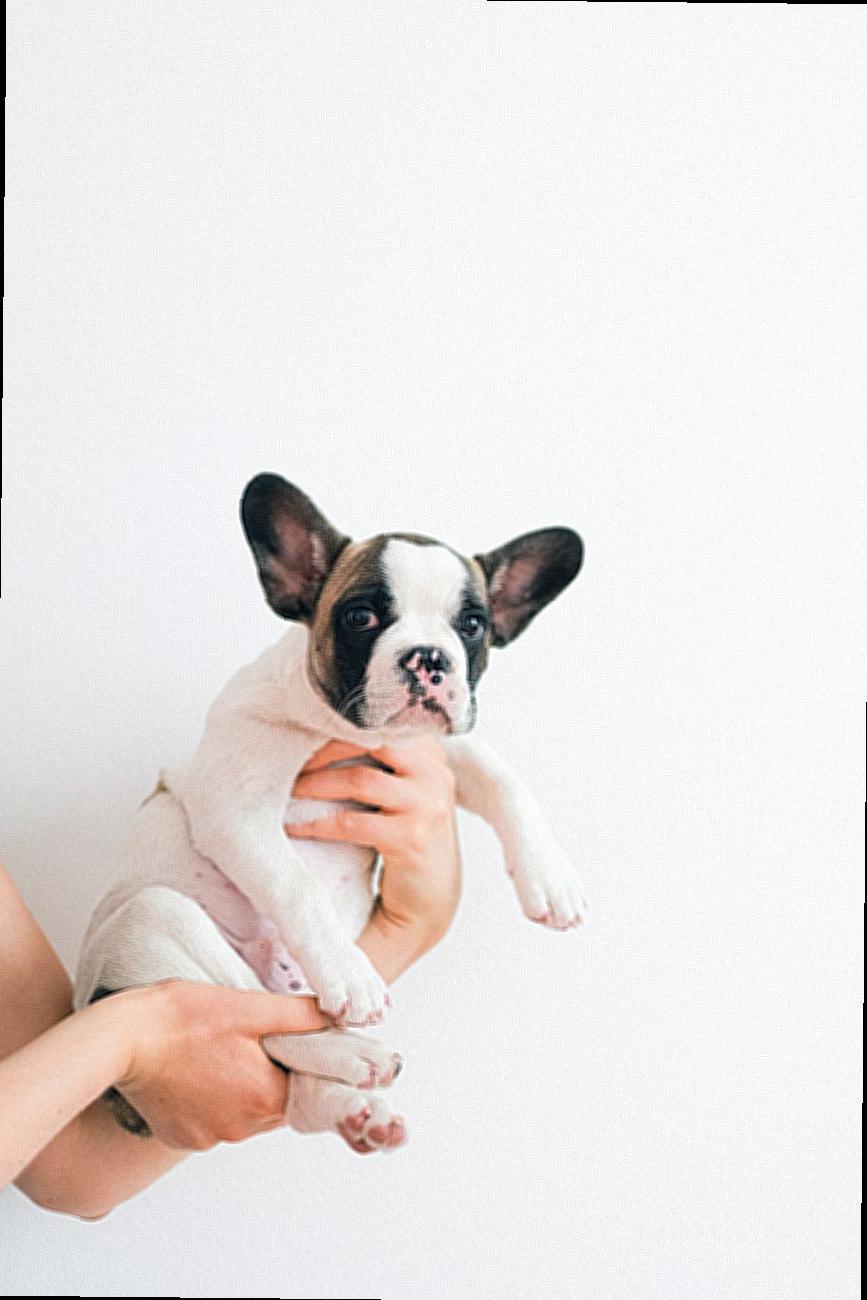
Welcome to the Grouchy Puppy Dog blog! Here, you’ll find all of the interesting facts and tips you’ll need if you’re considering bringing a grouchy puppy dog into your family. Grouchy puppy dogs are adorable and full of personality, but it’s important to understand the wonderful and unique quirks that they carry. This post will introduce you to these furry family members and provide you with useful advice on how to keep them happy and healthy. We’ll explore what it takes to properly care for and potty train a grouchy puppy, as well as how to manage common behavior problems. We’ll also reveal some fun facts and helpful myths, so you can be better prepared to provide your grouchy puppy with all of the love and attention it needs to be a happy and healthy companion.
Introducing Grouchy Puppy Dogs
Grouchy puppy dogs can be a challenge for first-time dog owners, but understanding the cause of their behavior can help owners know how to handle their pup’s moods. Grouchy puppies often differ from other breeds by being slightly aloof and rarely making friends with people or animals outside of their family. They also tend to be sensitive and sometimes fearful of new environments. If given the right training, however, a grouchy pup can prove to be a loyal and loving companion.
What Causes Grouchiness in Puppies?
Grouchy puppies may have a range of causes – sometimes temporary, sometimes longer-term – that explain their behavior. In the short-term, they may be reacting to a change in their environment, such as a move to a new home, a new person in the household, or a new pet. In the longer-term, their grouchiness can be linked to a genetic predisposition. For example, some breeds are known to be more prone to grouchiness than others, such as Chihuahuas and Dachshunds.
Additionally, puppies need consistent, positive reinforcement to help them overcome their fear and anxiety. Many puppies can become frightened when faced with unfamiliar people or places, and this fear can lead to grouchiness as they try to protect themselves. Finally, medical issues can also contribute to grouchiness, so it’s important for owners to stay vigilant for signs of pain or illness that might be causing the problem.
What Should Owners Do With Their Grouchy Puppy?
Training is the key to helping a grouchy puppy become more relaxed and trusting. Positive reinforcement and rewards can be used to help puppies learn that new people and new situations don’t have to be feared. Additionally, owners can encourage their pup to get plenty of physical and mental exercise, as this helps to burn off some of the energy that can lead to grouchiness.
It’s also important to set boundaries and rules for the puppy. This ensures that the pup understands the expectations and learns to respect them. Finally, if owners feel that the pup’s grouchiness is not improving with training and exercise, they should look into professional trainers and consider seeking medical help.
Experiences From Other Joins
Many owners of grouchy puppies have stories to share. For example, one Chihuahua owner was able to help her pup become more relaxed by taking him for regular walks, providing plenty of positive reinforcement for good behavior, and blocking him off when she felt he had enough interaction with people.
Similarly, a Dachshund owner had to take extra steps to socialize his pup, such as introducing him to other dogs, gradually introducing strangers, and taking him places where he could get used to seeing unfamiliar sights and sounds.
Others have found success with a combination of the steps outlined above, such as taking their pup for daily walks in the park, playing games with them at home, and introducing strangers in a slow, controlled manner. By consistently working with their grouchy pup, owners can help them overcome their fear and become more social.
Special Considerations
Grouchy puppies require patience and dedication from their owners. It’s important to remember that every pup is different, so owners need to be aware of their pup’s individual personality and behaviors. They should ensure that their pup has consistent boundaries and rules, so he knows what is expected of him. Additionally, it’s important to respond calmly and firmly to aggressive behaviors and to be attentive to signs of pain or illness.
In many cases, professional help is required to address the underlying causes of grouchiness. Expert trainers can help owners understand their pup better and provide the tools needed to help him become more relaxed. Finally, in severe cases, medical help might be necessary, so it’s important to stay on the lookout for these signs and contact a vet as soon as possible.
With patience and dedication, owners can help their grouchy puppy become more social and relaxed. By understanding why puppies act grouchy and applying consistent training techniques, even the grumpiest of pups can love and trust their owners.
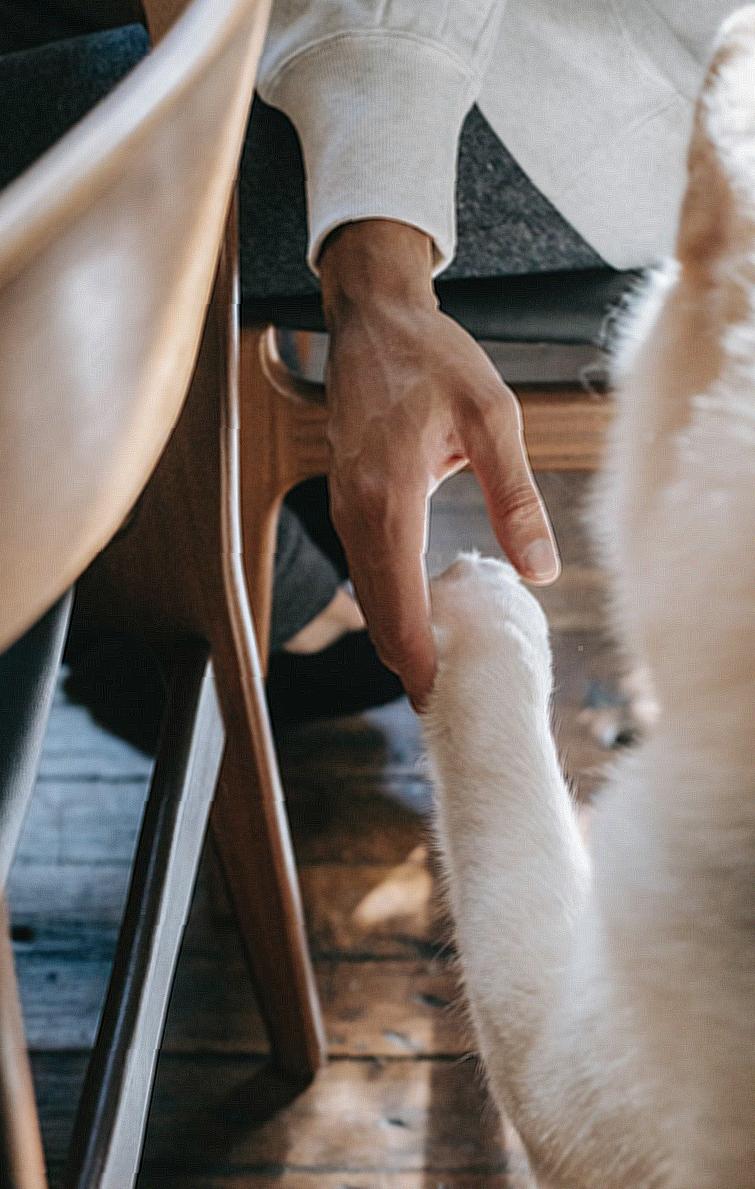
Common Characteristics of Grouchy Puppy Dogs
Grouchy puppy dogs have a unique temperament that sets them apart from other breeds. Like most puppies, they are curious, active, and eager to explore their environment. Grouchy puppy dogs have an aloof demeanor, however, and tend to be more independent and reserved. They have an independent streak that often makes them seem standoffish and unfriendly.
Exercise Requirements
Grouchy puppy dogs need plenty of exercise to stay healthy and happy. As puppies, Grouchy puppy dogs can benefit from several small ‘playtime’ sessions throughout the day. As they get older, Grouchy puppy dogs should have at least one daily outing for physical activity. Long walks or hikes, jogging, swimming, or outdoor activities like fetch or frisbee are the best forms of exercise for them. Taking Grouchy puppies to a dog park can also be a fun way to incorporate exercise and playtime.
Socialization
Socialization is incredibly important for Grouchy puppy dogs. They need to be exposed to different types of people, animals, and other puppies to learn how to behave properly around other animals and humans. Socialization should begin early when a puppy is still young. Care should be taken to ensure that the puppy is exposed to and handled by different people in a safe environment.
Grooming
Grouchy puppy dogs need to be groomed on a regular basis to stay healthy and look their best. Brushing is an important part of puppy grooming, and should be done twice a week. Grouchy puppies should also be bathed at least once a month, and their nails should be trimmed regularly.
Feeding
Grouchy puppy dogs need a balanced diet made up of high-quality proteins, carbohydrates, and essential vitamins and minerals. Puppies need to be fed several meals a day in carefully portioned amounts, to ensure they get all the essential nutrients they need while optimal development. High-quality dry food is usually the best option for Grouchy puppies.
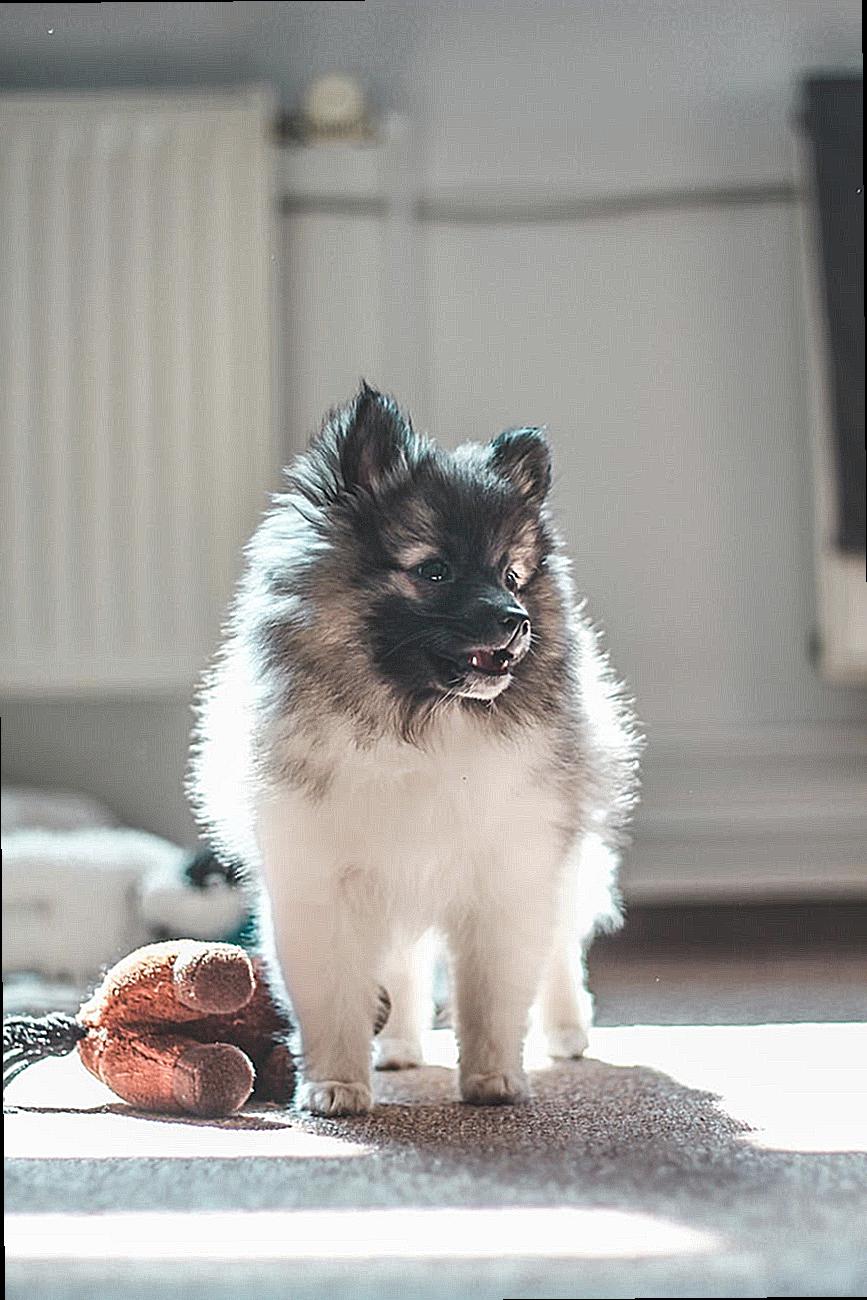
How to Keep a Grouchy Puppy Healthy and Happy
As a dog owner, we are always striving to keep our pup happy and healthy. This can be especially challenging with a grouchy puppy who may show aggression or anxious behavior due to past trauma or an unknown illness. Here are a few tips on how to care for a grouchy puppy and keep them healthy and happy.
Include Play and Exercise
One of the most important ways to reduce aggression and anxiety in a grouchy puppy is to give them regular exercise and playtime. Exercise can help to promote a healthier mental and physical state in your pup, and help to foster trust and reduce aggression. Try to include daily playtime and walks outside for at least an hour each day, as this can help to introduce a level of structure and routine in your puppy’s life, which can help to reduce anxious or aggressive behavior.
Schedule Regular Vet Check-Ups
Keeping up with your pup’s vaccination and preventive care is essential to keeping your puppy healthy. This can include regular check-ups, testing for parasites, or any other treatment or preventative measures that your vet may suggest for your pup. It is also important to discuss any behavioral issues you may be seeing in your pup, as your vet may be able to provide treatment or referral to a behaviorist if necessary.
Establish Firm Yet Gentle Rules
Having a set of clear, calm, and consistent rules with your grouchy pup is essential to helping them understand boundaries and alleviating anxiety. Some packs of rules may include refraining from give your pup table scraps, limiting access to certain parts of your home during certain times of day, or not allowing your pup to jump up on the furniture. Praise and positive reinforcement is key to developing these guidelines and setting a good example for your puppy.
Introduce Clicker Training
Clicker training is a great way to teach your puppy behaviors without aggression, and develop a healthy relationship between pet and owner. This method of training involves a clicker and treats, and was developed as a way to gently and quickly teach dogs tricks or obedience commands. Clicker training can be a great way to get your grouchy pup to focus, and redirect their energy in a positive direction.
Provide Enrichment
Not only do we need to provide our puppy with physical exercise, but also mental enrichment. Mental stimulation through activities such as puzzle toys, scent work, or food puzzles, can help to redirect their energy and give them a constructive outlet. This can be beneficial for a grouchy puppy as it will help to keep their minds sharp and alleviate boredom, which could ultimately lead to anxiety.
Spend Time with Your Dog
Spending regular one-on-one time with your puppy is just as important as exercise, training, and enrichment. This can include simple things such as going for walks together or cuddling on the couch. Setting aside daily time for your pup will help to reinforce positive behavior and establish trust with your puppy.
Reward Good Behavior
Finally, when it comes to training, positive reinforcement is key. If your pup is displaying good behavior, be sure to reward them with verbal praise, treats, or cuddles. This will help to reinforce good behavior and build a better understanding of commands.
Caring for a grouchy puppy can be challenging, but with patience, consistency, and love, you can help to create a healthy environment for your pup to live in and develop a strong connection with you. Remember that although your pup may be struggling right now, provide them with plenty of love and understanding and eventually they will learn to trust and accept good behavior.
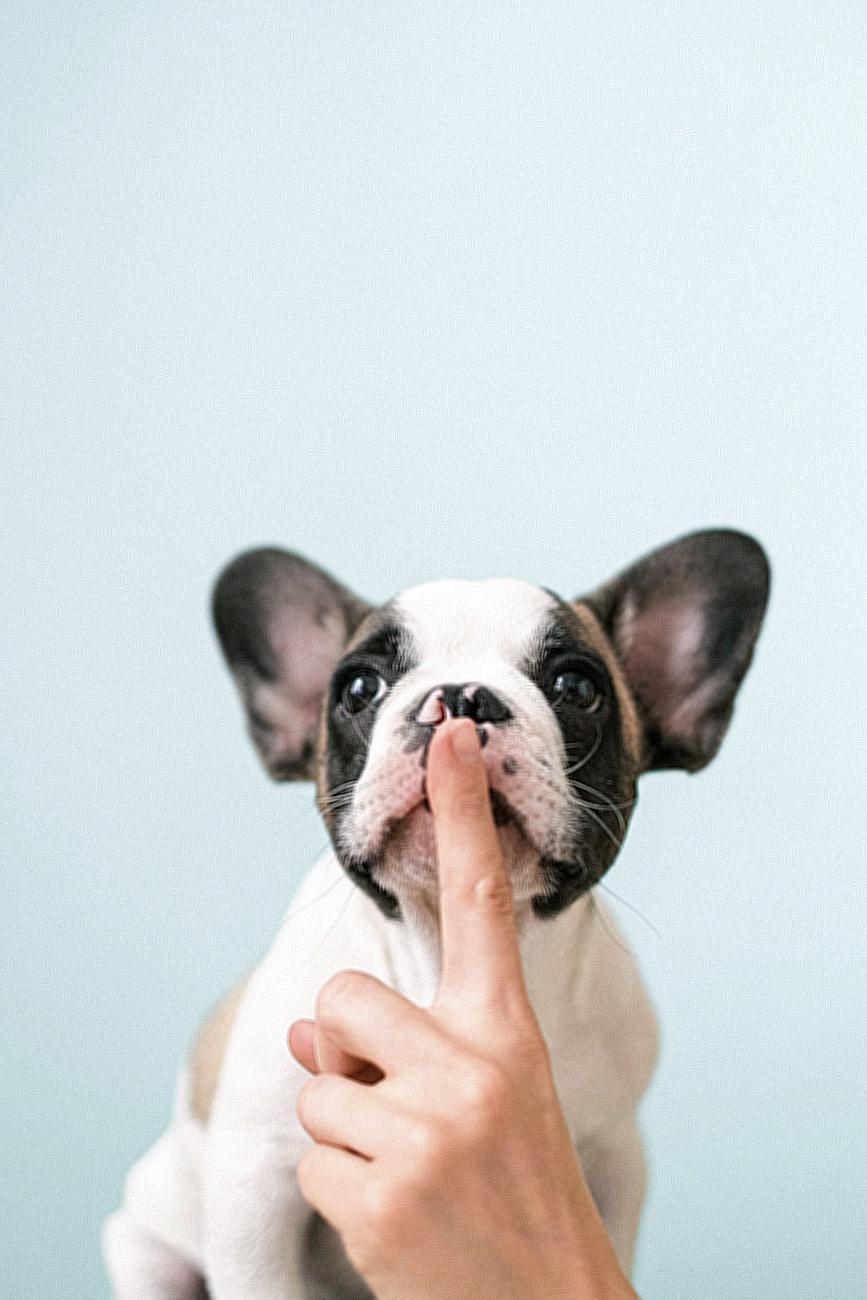
Potty Training Tips for Grouchy Puppies
Welcome to fellow puppy owners! For anyone who is struggling with a grouchy puppy, potty training can be one of the most challenging tasks, often leading to numerous frustrations. Despite being a difficult task, it is absolutely essential to be consistent and establish a clear routine when potty training a grouchy pup.
Establish a Solid Schedule
If you have a grouchy pup, consistent and scheduled potty training is key to success. Having a regular schedule for potty training and feeding will help your pup understand and remember the house rules. All you have to do is make sure that mealtimes and outdoor play/potty time are taking place at specific times without fail.
Positive Reinforcement
When outside, give positive reinforcement for successful elimination in the designated areas. This will help your pup make the connection between using the designated areas and be rewarded. This is an effective way to encourage good behavior. Use the same techniques when your pup interacts with other people or animals. If a successful potty break is achieved, don’t forget to give special treats and lots of love and attention.
Stories of Successful Potty Training
Although potty training may seem like an impossible task with grouchy puppies, keep in mind that there are successful stories, which provide motivation and hope. What better way to gain confidence, than hearing stories of successful cases? This also helps to understand that no matter how grouchy the puppy is, consistency and training can be beneficial.
Recognizing the Signs
Be attentive to your pup’s behavior. Becoming familiar with the audible and visual cues before urination or defecation can help you to prevent accidents indoors. Before your pup starts going in the wrong places, some signs you should be looking for are sniffing and/or circling around, spinning in circles, whining, or barking. If you recognize any of these signs, quickly bring your pup outside and reward him for going in the designated area.
Disciplinary Measures in Cases of Accidents
Having accidents inside the house is inevitable. Once it has happened, the most important thing is to clean the surfaces properly and avoid punishing the puppy. Punishments are unnecessary and will definitely put further strain on the potty training routine. Instead, it is better to immediately change the environment, remove the pup from the area, and maybe redirect the attention elsewhere.
Preventing House Soiling
To prevent long-term house soiling from occurring, it is important to routinely clean the designated areas where the puppy will urinate or defecate. Additionally, it is important that your pup spends time outside on a regular basis in order for them to develop good potty habits.
Potty training a grouchy puppy requires patience, consistency and, most importantly, love. Following these tips can help you yield positive results in your training routine. Good luck!

Grooming Basics for Grouchy Puppies
Grouchy puppies are cute pets that need a bit more care and attention than other canine breeds. From brushing and cleaning them to choosing the right products for different stages of their life, taking the time to groom your grouchy puppy correctly is essential for their overall health and wellbeing.
Understanding Grouchy Puppies’ Physical Characteristics
First and foremost, it’s important to understand the physical characteristics of your grouchy puppy. Grouchy puppies come in all shapes, sizes and hair types — with some varieties having long and curly coats, while others have shorter, wiry coats. Knowing your pup’s exact breed will help you determine the best grooming methods and products.
Aside from basic brushing, you’ll need to assess other grooming needs like trimming nails, cleaning their eyes, and plenty of brushing for those longer-haired puppies.
Grooming Frequency
The grooming frequency for your grouchy puppy depends on several factors including their age, size, and hair type. For example, older puppies and adult dogs may need fewer grooming sessions than the average pup since their hair isn’t growing as quickly. Smaller dogs may require more grooming than larger breeds due to their denser coat and thick fur.
In general, most grouchy puppies need to be groomed at least once every couple of months. For those with long and curly coats, it’s best to schedule biweekly sessions.
Tools Needed
From shampoos and conditioners to brushes, combs and more, there are various grooming tools that you’ll need to properly groom a grouchy puppy. For starters, make sure to invest in a quality brush that’s designed specifically for their hair type. Also, consider purchasing a slicker brush, gentle detangling comb and a quality shampoo.
The Grooming Process
When it’s time for your grouchy puppy’s grooming session, start by thoroughly brushing the coat, removing dead fur and tangles. Afterward, use a slicker brush to make sure the coat is soft and fluffy.
Next, gently use a detangling comb to rid of mats and knots. You’ll want to make sure that the comb is designed with gentle bristles as to not hurt your pup’s skin. After the combing process is complete, rinse the coat with a warm, moist cloth and apply a generous amount of shampoo.
Once the shampoo has been applied, give your pup a gentle massage, then rinse with warm, clean water. Finally, use a quality conditioner to ensure that the coat is soft and glossy.
Special Considerations
When grooming groupy puppies, consider introducing them to the process slowly, rather than rush through the entire grooming session in one go. Also, be sure to have plenty of treats and rewards on-hand for when your pup does a particularly good job.
Example
Take for example, Nala, my grouchy puppy pooch. She was always so grouchy during grooming sessions that it was tough to stay on top of her care. After constantly remembering to brush her fur and keep her clean, I noticed a massive difference in her overall personality and wellbeing. She seemed a lot calmer and relaxed and wasn’t nearly as grumpy as she used to be.
By taking the time to groom her properly, I was able to ensure that she was in good health, happy, and had a beautiful, shiny coat. This all goes to show how powerful proper and regular grooming is for grouchy puppies.
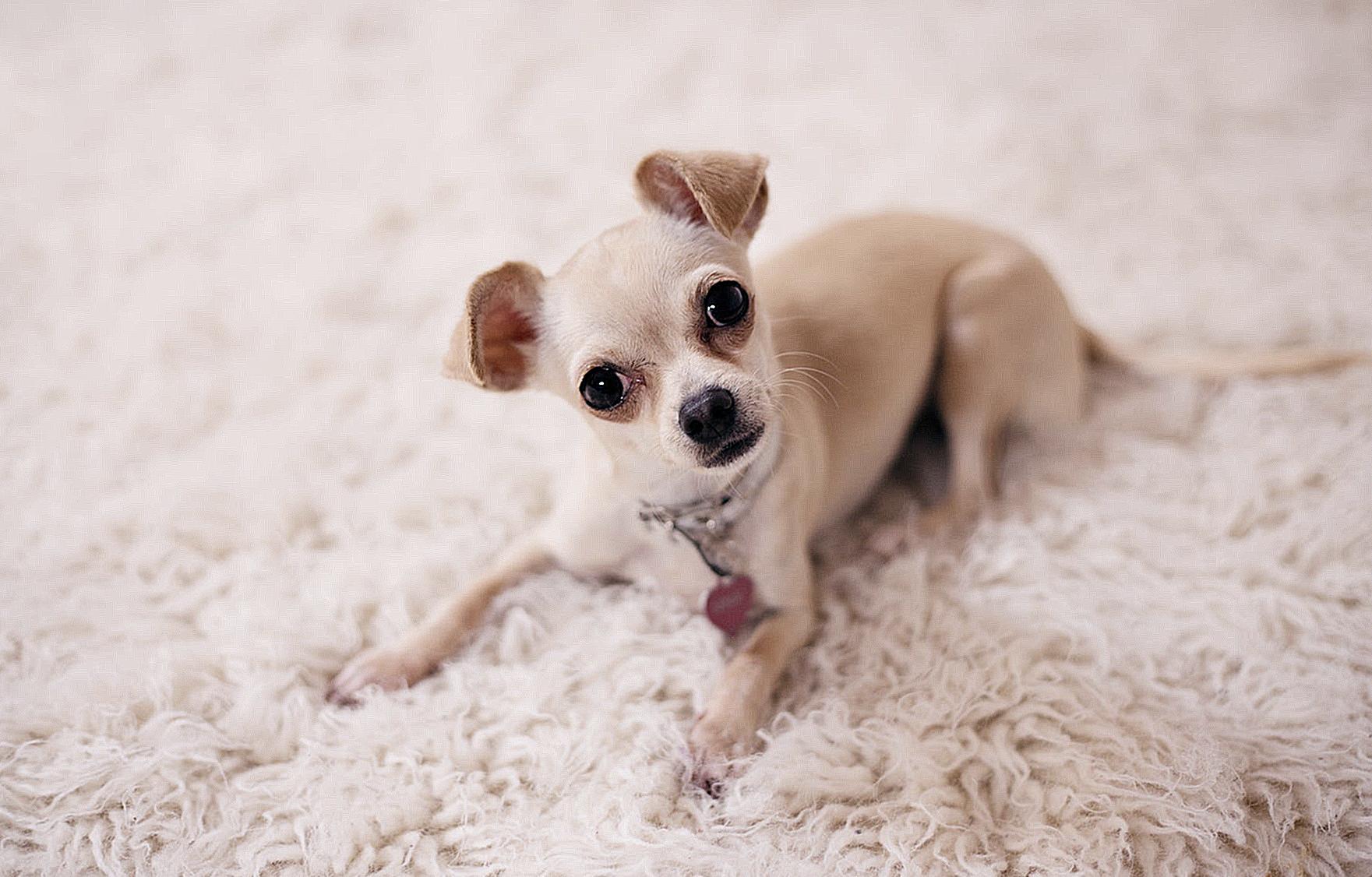
Exercise Requirements for Grouchy Puppies
As all pet parents know, puppies are full of energy and life. However, if they don’t get enough exercise, they can quickly become grouchy and grumpy. A lack of exercise coupled with too much energy can manifest itself in destructive behaviors such licking, chewing, and barking. There are numerous benefits of providing regular exercise for a grouchy puppy. Providing regular exercise for a grouchy puppy can improve overall health, reduce destructive behaviors, and increase energy levels.
Benefits of Exercise for Grouchy Puppies
Exercise is a crucial part of keeping your puppy happy and healthy. Research has shown that regular exercise can improve a puppy’s overall physical health; strength and endurance are improved, as well as their cognitive functioning. Exercise also helps to prevent obesity and reduces the risk of developing chronic illnesses.
In addition to physical health benefits, regular exercise can also improve a puppy’s behavior. Well-exercised puppies are often more attentive and responsive to commands, respond better to training, and are less likely to act out due to boredom. Exercise can also reduce anxiety levels, make them more confident and outgoing. Exercise also increases energy levels allowing puppies to sleep better at night and wake up more rested and alert during the day.
Types of Exercises to Try
There are many different types of exercise to try with your grouchy puppy. The key is to identify an activity that fits your puppy’s personality and energy level. Some examples of different forms of exercise for grouchy puppies are: walking, running, swimming, scenting, tug-of-war, fetch, and agility courses.
For more active puppies, activities like swimming, running, and agility courses can provide a great cardio workout. For puppies that don’t enjoy more strenuous activities, activities like walking and scenting can be fun and stimulating. And for puppies that tend to be more relaxed, activities such as playing tug-of-war, fetch, and obedience training can help to improve overall behavior and mood.
Strategies for Success
Exercising a grouchy puppy can be challenging but there are a few tips that can help ensure success. First, it’s important to identify the type of activity that your puppy enjoys the most and make that the focus of your exercise routine. This will help to ensure that your puppy will look forward to exercise rather than dreading it.
In addition, consistency is key when it comes to exercise. Puppies, just like people, thrive on routine and structure, so it’s important to commit to a daily walking/exercise schedule and stick to it. Offering positive reinforcement such as treats and verbal praise can help to cultivate a positive relationship between you and your puppy and will encourage them to keep up the good work.
It’s also important to make sure that the exercise environment is safe, fun, and comfortable. Provide plenty of water and use appropriate dog walking gear. In addition, if your puppy starts to get tired or distracted, make sure to take a break as necessary.
Stories & Examples
There are countless stories and examples of successful exercises improving the lives of grouchy puppies. For example, Ebony is a 2 year-old husky that became very grumpy and disconnected as she got older. Her parents noticed this abrupt change in behavior and decided to commit to a regular exercise routine. After several weeks, her parents noticed an improvement in her behavior. She seemed more alert and focused and she was more excited to go on walks and play outside.
Duncan was a 6-month-old Labradoodle that enjoyed running, but was too energetic to take long runs. His parents decided to focus on agility training, which incorporated plenty of running but with obstacles and commands that kept his interest. By committing to a few agility classes a week, Duncan was able to focus his energy and become more obedient.
These are only a few examples, but the stories are seemingly endless: regular exercise really and truly improves the lives of grouchy puppies.
The benefits of providing regular exercise for a grouchy puppy are undeniable. Exercise can improve physical health, reduce destructive behaviors, and increase energy levels. In addition to benefitting the puppy, the bond between pup and pet parent grows stronger. With the right approach and dedication, a grumpy puppy can become a happy and healthy one in no time.
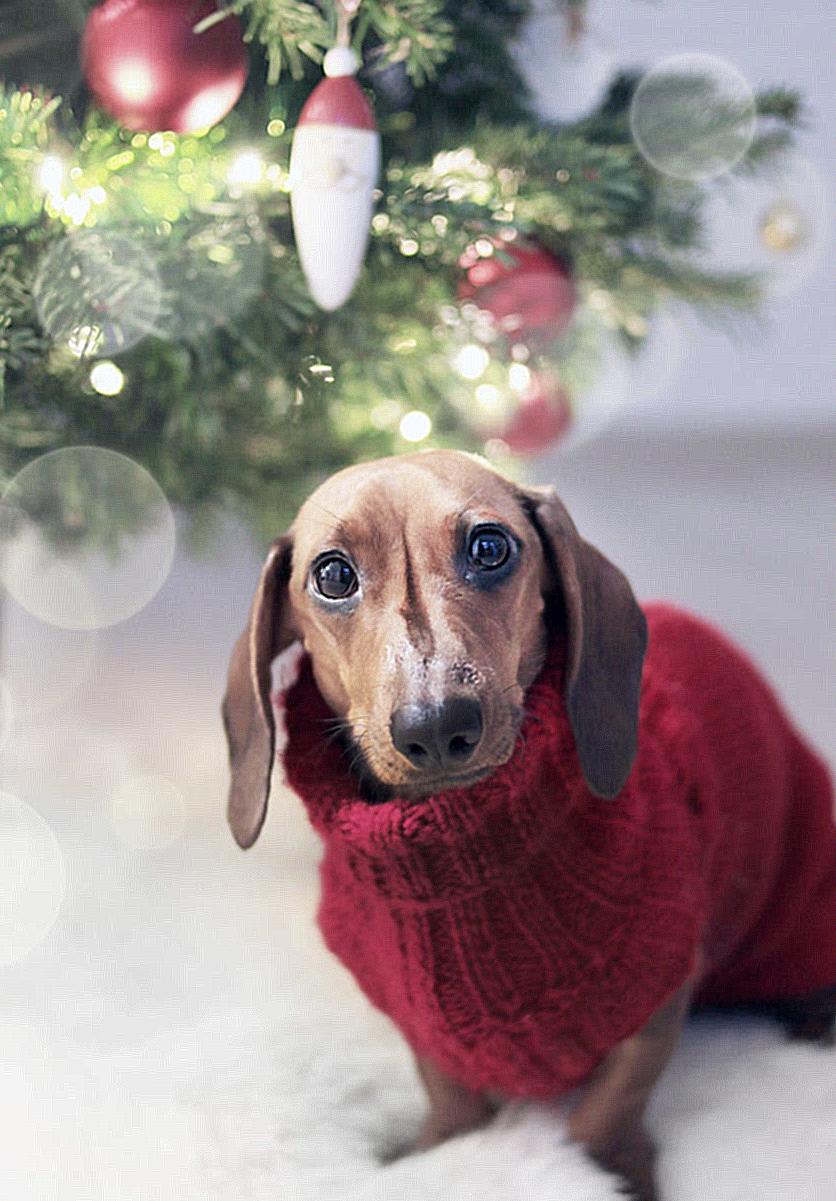
Nutrition Tips for Grouchy Puppies
As a pup parent, it’s important to nourish your pooch’s body and mind with top-notch nutrition. A proper diet can make all the difference in maintaining your grouchy pup’s health and wellbeing. Here are some easy tips to ensure your grouchy pup is getting the nutrition they deserve.
Feed Your Grouchy Puppy High-Quality Dry Kibble
High-quality dry kibble for dogs is an optimum choice for your grouchy pup. It contains essential vitamins and minerals that promote good overall health and helps keep their gut healthy. As long as the kibble is free from grains, artificial colors and preservatives, it’ll provide your grouchy pup with good nutrition.
Supplement with Fresh Fruits and Veggies
In addition to dry kibble, supplementing your pup’s diet with fresh fruits and vegetables can ensure their bodies get enough necessary vitamins and minerals. However, certain foods can also trigger allergies in grouchy puppies, so be sure to monitor for any reactions. Healthy options for treats include bits of apples, carrots, spinach, and other non-starchy vegetables.
Offer Variety
Grouchy puppies become easily bored, so you’ll want to switch up their diet from time to time to keep them from becoming uninterested. Rotate proteins, vegetables, and fruits. Different proteins such as chicken, beef, or fish are all good options. Just be sure to introduce any new foods to your pup’s diet in small amounts to make sure they don’t have any adverse effects.
Avoid Overfeeding
Portion control is key to a healthy diet for grouchy puppies. Monitor your pup’s eating habits closely and make sure they’re not eating too much or too little. It’s best to stick to recommended portions and divide them up into smaller meals throughout the day. This will ensure their metabolic needs are met, and help in regulating their weight.
Make Sure Your Pup is Drinking Enough Water
Dehydration can lead to a number of medical and behavioral issues. Always have fresh, clean water available and check your pup’s bowls multiple times throughout the day to make sure they’ve had sufficient amounts. Not only will this help maintain their hydration, but it’ll also help keep their bellies full.
Maintaining a healthy diet can go a long way in keeping grouchy puppies content and healthy. Adopting these simple tips can lead to changes in their behavior, making them happier and more relaxed with their humans. With a wholesome diet and lots of love, your pup will be sure to give you grouchy-free days.
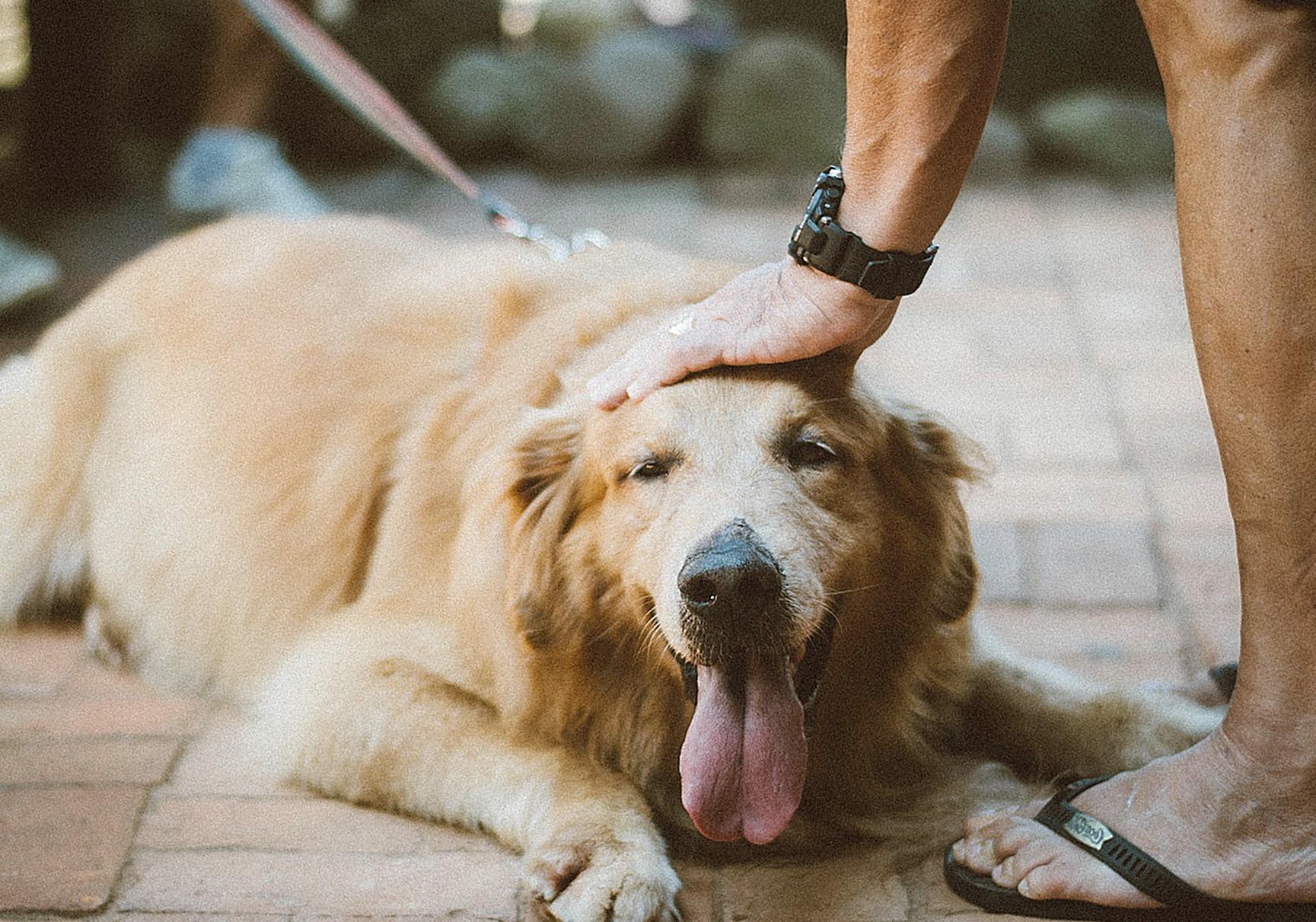
How to Handle Common Behavior Problems in Grouchy Puppies
As pet parents, we all have experienced some kind of frustration with our four-legged friends’ behavior. But don’t fear, because you’re far from alone.
From jumping up on people to digging in the backyard and even being snippy with other dogs, puppies can sometimes exhibit behaviors that are anything but calm. But while it may seem like a battle you can never win, there are tactics you can take to curb those grouchy puppy behaviors.
The Need to Establish Boundaries
A puppy’s temperament can often be determined by the boundaries you set. If you never enforce a set of rules that your puppy must follow, they can become confused and uncertain of the expectations placed on them.
Consistency is a must when it comes to reinforcing the rules and avoiding negative behaviors. If you allow them to do something once, but not a second time, things can become confusing for your pup.
Setting Limitations
It’s important to be consistent with commands and set limits. This can be done through positive reinforcement. Praise and treats, when given in the right way and at the right times, can let your puppy know when their behavior is acceptable.
At the same time, it is important to be consistent with bad behavior and discipline accordingly. This way, your puppy will learn the consequences that come with exhibiting certain behaviors.
Establishing Routine
A regular schedule can help immensely when it comes to training. Have set times for meals, barking prevention, going outdoors, and even walking routines should be put into place. Establishing a routine will help minimize unwanted behaviors as your pup will understand what is expected of them.
Minimizing Stimulation
Overstimulation can be a huge factor when it comes to grouchiness. Too much noise and external stimulation can cause a puppy to be overwhelmed and, in turn, grouchy. If you can help minimize the noises and distractions in your pup’s environment, they may become calmer and more well-behaved.
Exercising for Stress Relief
Physical activity is also an important part of managing stress in puppies. Running, playing and taking walks can help release energy and stress, which can reduce grouchiness.
Socialisation
Socialisation is also important for puppies. Allowing puppies to interact with new people and other pets can help them learn to feel more comfortable in unfamiliar situations. Having them stay with strangers for a few hours can work wonders for familiarising puppies with new environments.
The Benefit of Patience
And lastly, having patience is essential when it comes to puppies. Understanding that they can take some time adjusting to a new environment and space is key to successfully raising a pup that exhibits appropriate behavior.
It can be hard not to get frustrated when a puppy exhibits bad behavior, but it’s important to remember that they’re just babies and don’t yet understand basic commands and behavior. With time, consistency, and patience, you can help your puppy become more obedient and less grouchy.
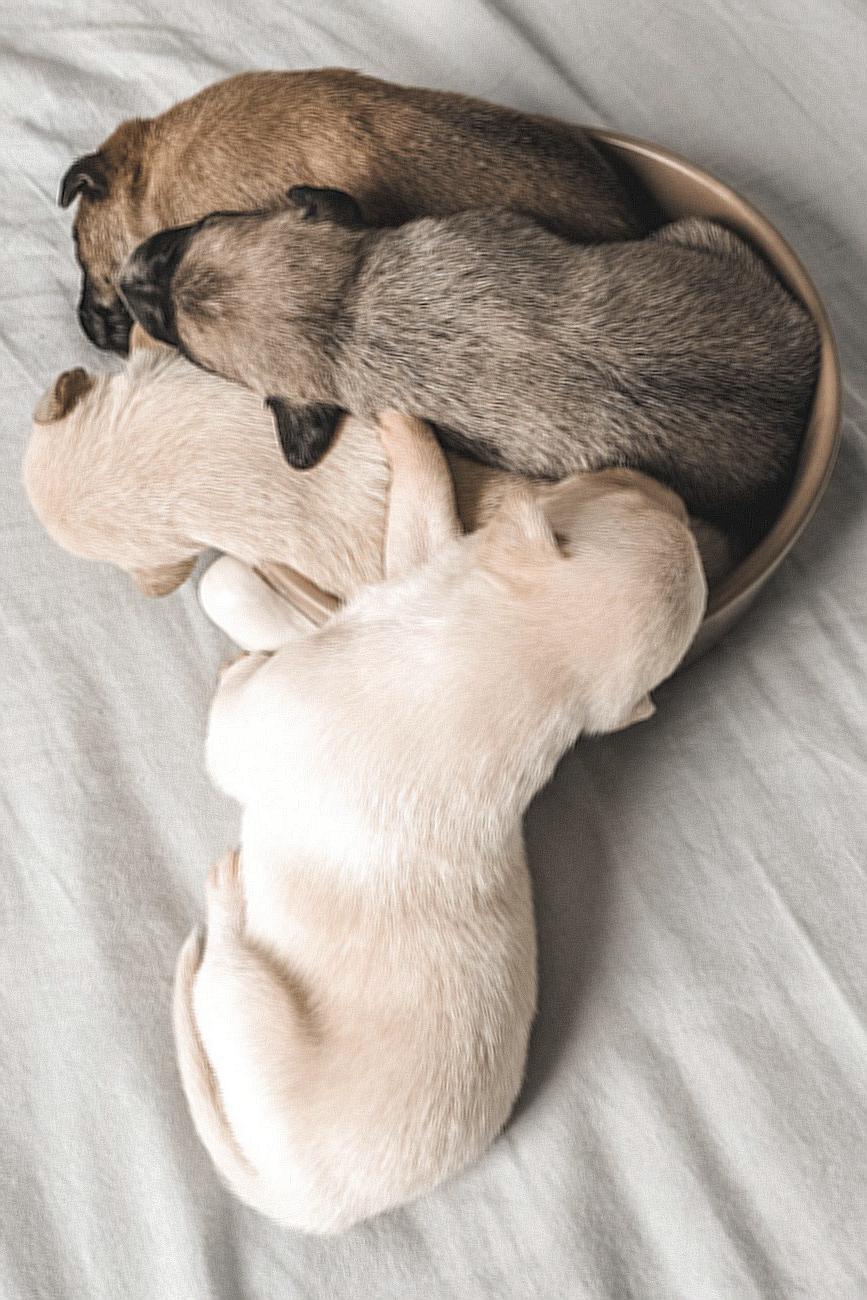
Facts and Myths About Grouchy Puppies
When people think of puppies, they usually think of happy, playful and outgoing animals. Unfortunately, not all puppies are like that and some may become grouchy. Many dog owners are faced with the challenge of finding the cause of their pup’s grouchiness.
While there are many misconceptions about the causes of grouchiness in puppies, it is important to distinguish between facts and myths.
Reasons Why Puppies May Become Grouchy
The most common causes of grouchiness in puppies are fear/anxiety, boredom/lack of stimulation, behavior training issues, and inadequate nutrition.
If your puppy is shy and skittish around other dogs, people, or certain situations, then it may be due to fear or anxiety. These puppies may become more clingy and may bark, growl, or hide when meeting other animals.
Puppies that suffer from boredom may also become grouchy. If a pup is not getting enough exercise, playtime, and attention, they may become restless and frustrated, leading to nervousness, agitation, and barking.
Behavior training problems or a lack of consistent boundaries can also lead to grouchiness. Without enough structure and control, puppies can become confused and develop misunderstood behaviors that can lead to frustration.
Finally, inadequate nutrition can also lead to grouchiness. If a puppy is not supplied with adequate amounts and types of food, it may become restless, irritable, and fearful.
How to Treat Grouchiness in Puppies
Fortunately, these issues can be solved or minimized to make grouchy puppies happier.
The best way to address a grouchy puppy’s disposition is through consistent, positive reinforcement training. Teaching a pup specific commands, boundaries, and rewarding desired behavior can help provide structure, control, and clarity of expectations.
Adequate exercise and mental stimulation are also important in reducing irritability and frustration. Regular playtime and regular walks can help keep your pup stimulated, active and less prone to grouchiness.
Providing appropriate levels of attention, affection, and emotion regulation is also key. Spending quality time with your puppy can help ensure that it feels loved and secure. Providing toys, chews, and puzzle games can also help alleviate boredom and help prevent grouchy behavior.
Finally, providing adequate nutrition and monitoring your puppy’s diet can help keep it in peak physical shape, which can greatly reduce restlessness and aggression.
Conclusion
Grouchiness in puppies is a common challenge that many dog owners face. Fortunately, understanding the causes and taking steps to properly address them can help puppies become well-adjusted and happy. With consistent love, care, and positive reinforcement, your grouchy puppy can become the happy and confident pup it was always meant to be.
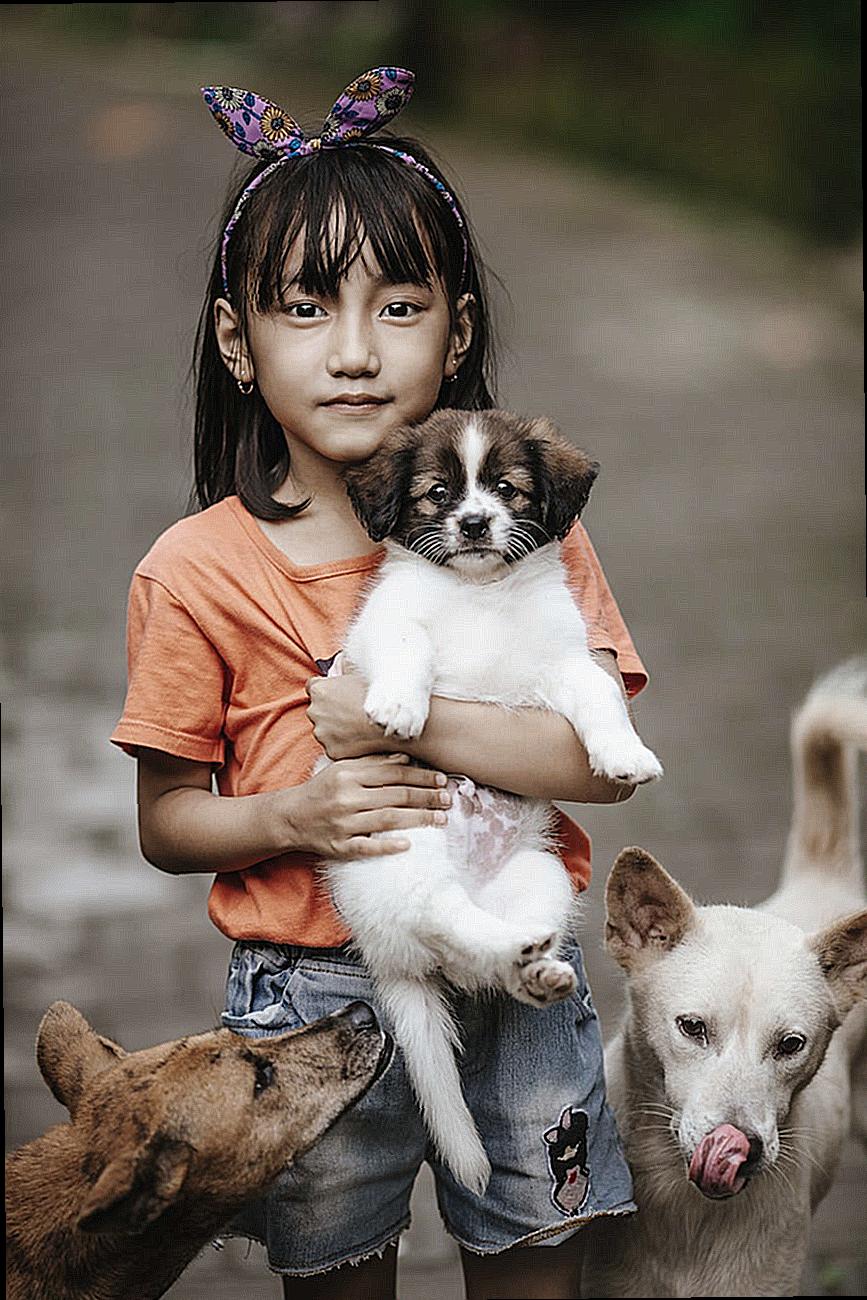
Final Thoughts on Owning a Grouchy Puppy
As any pet owner knows, puppies can present a challenge in terms of training and socializing. It takes a lot of hard work, patience and understanding in order to ensure a positive outcome in these cases. Grouchy puppies are no exception and often require extra time, effort and consistency when it comes to teaching them good habits and manners.
From setting boundaries and providing proper nutrition to suiting up for daily walks and providing mental stimulation, taking care of a grouchy puppy can be difficult but rewarding work. By implementing proper training and discipline practices, as well as seeking help and advice from a professional, pet owners can provide their pup with the support they need to be the best they can be.
It’s important to keep in mind that when faced with a challenging pet, there is a supportive community of pet owners out there to help. Whether faced with the occasional annoyance or the more serious problem, seeking help and advice and forming connections with others may be the key to improving the relationship between pet and owner.
Raising a grouchy puppy can be a challenge, but it does not have to be overwhelming. In the end, it is all about patience, consistency and understanding in order to ensure your pet will become the best version of themselves. With the right guidance, positive reinforcement and plenty of love, even the grouchiest doggy can turn into a tail-wagging ball of energy.
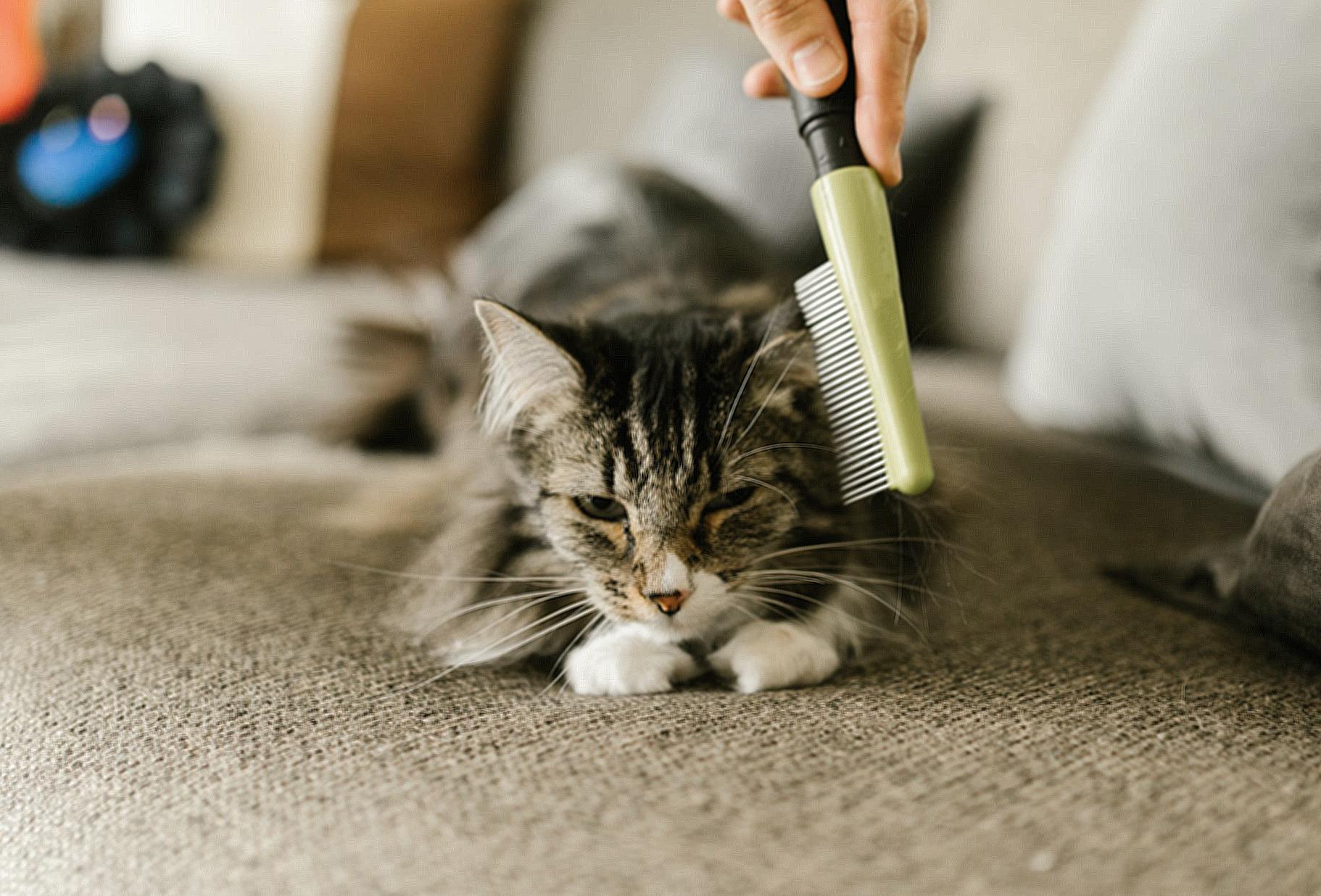
Conclusion
Owning a grouchy puppy may come with its share of challenges and obstacles, but there is nothing more rewarding than loving and caring for such a sweet and cuddly canine companion. With the right training and proper nutrition, grouchy puppies can thrive and flourish. So if you’re thinking of adopting a grouchy puppy dog, the key is to stay patient and consistent with your training methods and care. Doing so will ensure that your grouchy pup will become the wonderful canine friend you dreamed of when you first saw them and brought them home!
